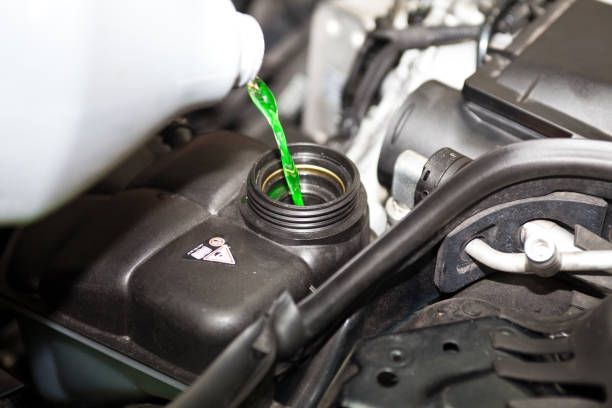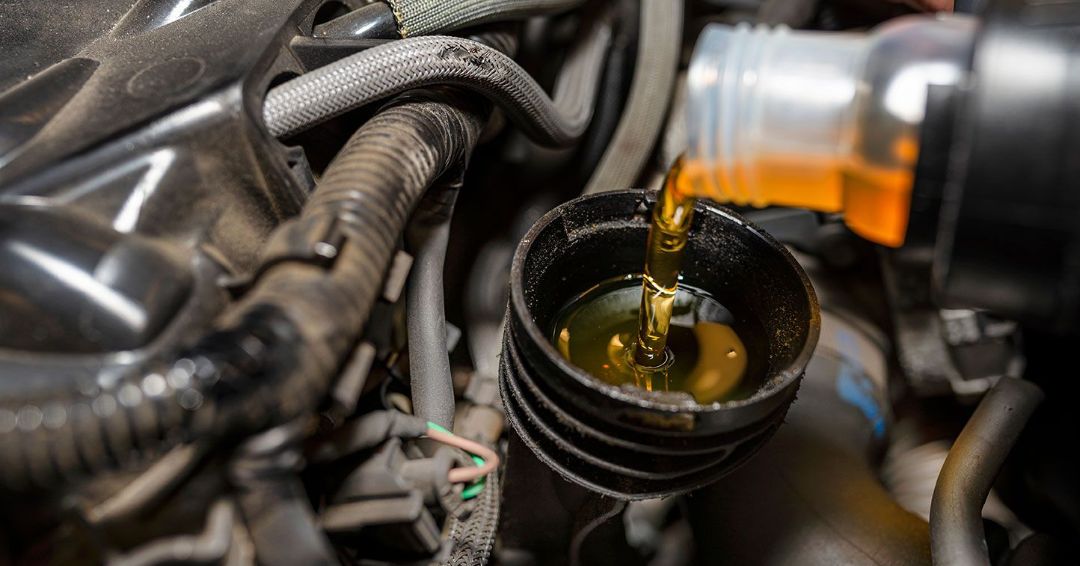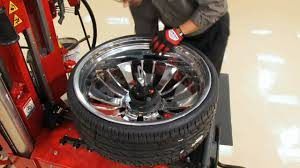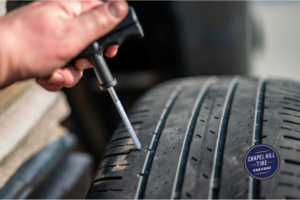Tire Rotation, Tire Alignment, and Tire Balancing – What’s the Difference?
Auto Shops Located in: Chapel Hill, Durham, Taleigh, Apex, and Cary North Carolina

What is the Difference Between Tire Rotation, Wheel Alignment, and Tire Balancing?
Tires can be costly and inconvenient to replace, which is why tire repairs and protections are so important. However, it can be difficult to distinguish between the various tire services and determine when you may need them. Your Chapel Hill Tire experts are here to help with this quick guide to tire rotation, tire alignment, and tire balancing.
What is a Tire Rotation?
The tread on your tires is what keeps you safely controlling, slowing, and stopping your vehicle on the road. Over time, the tread on your front tires becomes worn more quickly than your back tires because they absorb additional friction as you turn your wheels. A tire rotations involve switching your tires so that they wear more evenly, protecting your set of tires as a whole and keeping them lasting for as long as possible.
How Often do I Need a Tire Rotation?
The ideal cadence of your tire rotation can depend on your brand of tires, your vehicle’s steering system, your driving patterns, and the road conditions in your area. On average, you will need a rotation every 5,000-8,000 miles. Consult your owner’s guide for more information, and consider keeping an eye on the changing tread of your tires to stay ahead of needed rotations.
What is Tire Balancing?
Road bumps, potholes, tire wear, and other negative conditions can throw off the balance of your tires. Tire balancing is the process of eliminating uneven points in your tires to provide a smooth, comfortable ride. This is often done by match mounting. Match mounting is the tire balancing process of inspecting your wheels and matching the high and low points in your rims with that of your tires.
When do I Need Tire Balancing?
Tire balancing is not a routine service, so you should only get your tires balanced as needed. You can tell that you are in need of tire balancing if your vehicle or steering wheel shakes and vibrates as you drive. These symptoms are usually heightened at faster speeds. You might also opt for occasional tire balancing if you have invested in specialty or expensive rims. Tire balancing can keep your rims protected by maintaining vehicle stability on the road and keeping your rims evenly covered. If you are unsure of whether or not you need tire balancing, speak with an expert at your local tire and mechanic shop.
What is a Tire Alignment?
Does your vehicle feel as though it is not driving perfectly straight? Or maybe it seems to be drifting towards one side of the road? You might be due for a wheel or tire alignment. Wheel alignment is a vehicle service that makes sure your tires are pointed straight and aligned within the axis of your vehicle. Misaligned tires can cause accidents, uneven tire wear, and other dangerous driving situations. This is why it is important to find a tire professional who offers free alignment inspections and get your vehicle checked at the first sign of an alignment issue.
When Do I Need Tire Alignment?
Much like tire balancing, tire alignment should be completed as needed rather than routinely. The signs and symptoms can be hard to distinguish between that of a tire balancing issue, as vehicle and steering wheel shaking can be caused by alignment problems. One key distinction is that misaligned tires often drift or pull your vehicle and steering wheel to one side. Still unsure if you are due for an alignment? Read our five signs that you need a tire alignment, or contact our tire experts today for insight and a free alignment inspection.
Tire Service in the Triangle
When you are due for a tire rotation, balancing, or alignment, the experts at Chapel Hill Tire have you covered. We have eight Triangle-area locations, spanning Chapel Hill, Raleigh, Durham, and Carrboro. Visit your local Chapel Hill Tire or schedule your tire service appointment right here online to get started!
We’ve got all your automotive repair needs covered.















